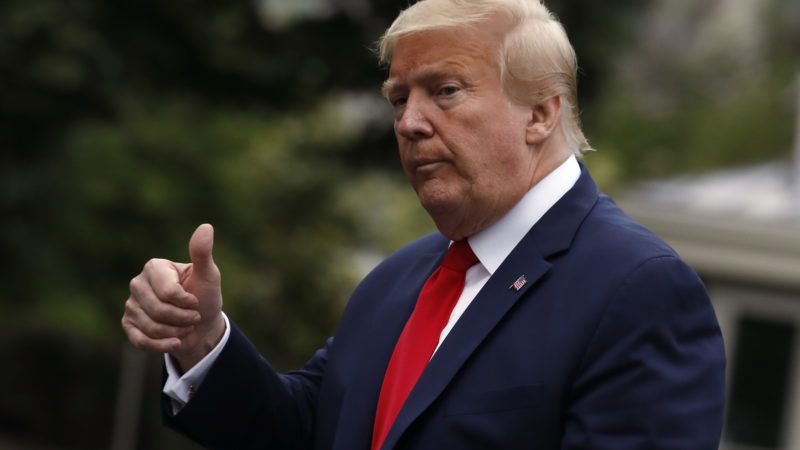Congress' Pathetic Effort at Revoking Trump's Trade War Powers Has Failed
Sen. Chuck Grassley says it's dead because lawmakers feared upsetting the president.

A bipartisan effort to limit the president's authority to impose tariffs unilaterally appears to have been scrubbed before it ever reached the launch pad.
Sen. Chuck Grassley (R–Iowa) told Inside Trade, an industry publication, that legislation curtailing President Donald Trump's unprecedented and aggressive use of tariffs under the guise of "national security" has stalled in the Senate Finance Committee, which Grassley chairs. Grassley said lawmakers were unable to reach an agreement to pass a bill, in part, because Republican members of the committee were unwilling to stand up to the president.
The U.S. Constitution gives Congress final authority over trade, but the legislature has delegated much of that authority to the executive branch since the end of World War II. Under Section 232 of the Trade Expansion Act of 1962, for example, Congress gave the White House the ability to impose tariffs unilaterally in order to protect domestic industries deemed essential for national security. It's a provision that was supposed to ensure America had adequate supplies of weaponry in the event of a war, but the Trump administration has stretched the "national security" claim to an absurd degree—going as far as suggesting that imported cars might somehow threaten America's ability to defend itself.
After Trump used Section 232 to slap tariffs on steel and aluminum imports in March 2018, some members of Congress suggested that the law should be rewritten to prevent such abuse.
One proposal, sponsored by Sens. Pat Toomey (R–Penn.) and Mark Warner (D–Va.), would require congressional assent before tariffs could be imposed under Section 232. Another bill, sponsored by Sens. Rob Portman (R–Ohio) and Doug Jones (D–Ala.), would transfer the Section 232 process from the Commerce Department to the Pentagon, and it would add a mechanism to allow Congress to block presidential tariff declarations—but would not require affirmative consent by lawmakers.
For months, both ideas have been batted around within the Senate Finance Committee. Grassley has repeatedly said he wanted to pass something curtailing presidential tariff powers—and Republicans have quietly worried that Trump's aggressive use of Section 232 could allow a future Democratic administration to declare, for example, global warming a national security risk and use Section 232 to slap tariffs on carbon-emitting goods and industries.
That would be no more ridiculous than how Trump has used the law. Republicans' failure to stand up to Trump's hamfisted attempts to redirect global trade may only pave the way for future abuses—and it demonstrates the extent to which Congress has abdicated its role as a co-equal branch of government.


Show Comments (28)